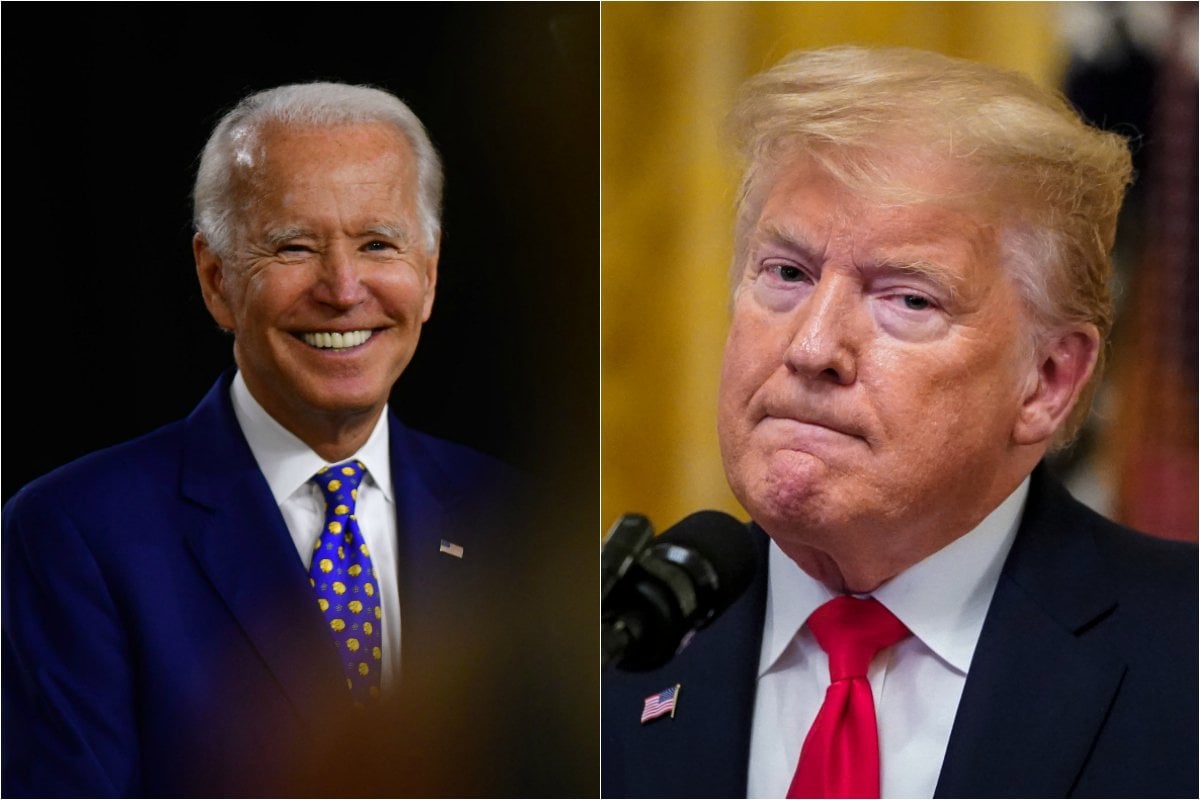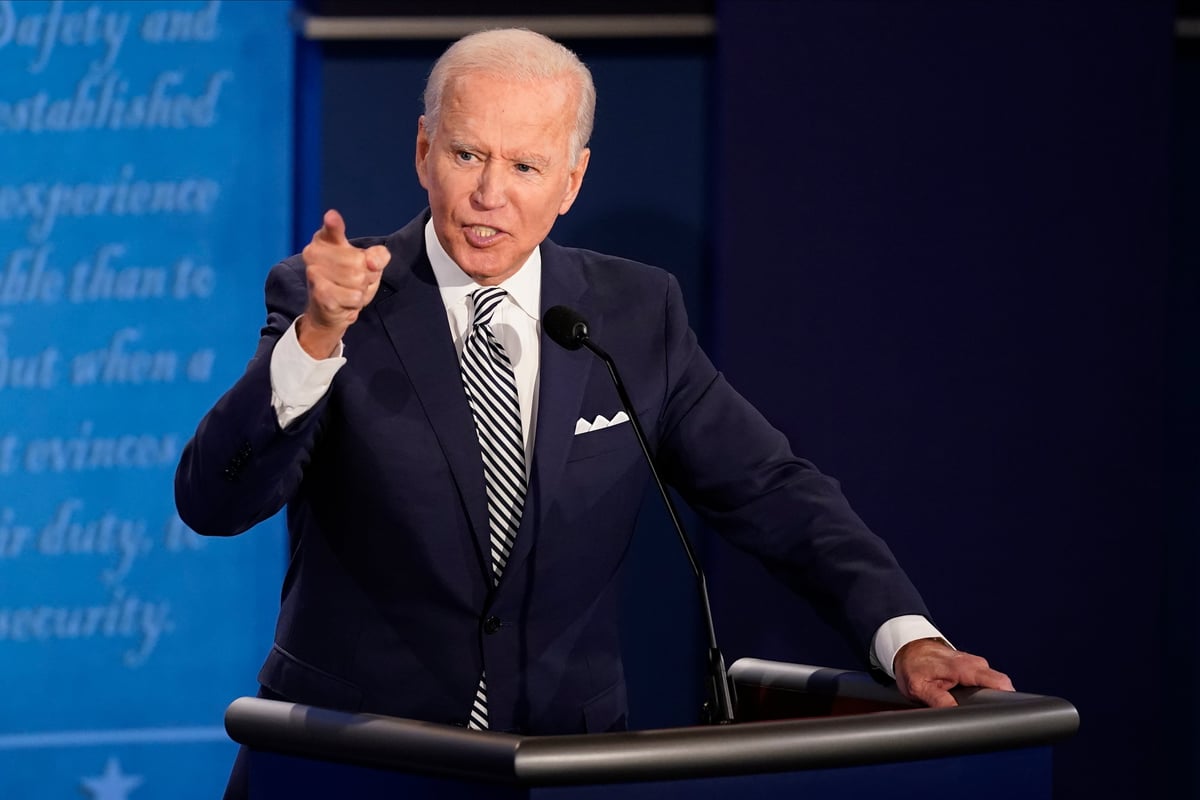
There are 14 days until the US Presidential election, when Americans will decide if President Donald Trump will remain in the White House or be succeeded by Democratic Party nominee Joe Biden. Best known as Barack Obama's former vice-president, Biden is campaigning alongside his vice-presidential pick, Kamala Harris.
According to the polls, he has led a successful race. Both national and state polls show Biden as the winner of the November 3 election.
But after the unexpected win of Donald Trump in 2016, against Hillary Clinton, can we even trust polls?
Watch: Donald Trump and Joe Biden in the first presidential debate. Post continues below.
Here's everything we know about who will win, according to the experts.
What do the national polls say?
National polls say Joe Biden is more popular that the incumbent, President Trump, suggesting he has more than 50 per cent of the vote.
However, national polls are poor indicators for who will actually win.
In 2016, Hillary Clinton won the popular vote by nearly three million votes. She didn't win, though, because she didn't garner enough Electoral College votes. Essentially, the American voting system means that even if a majority of Americans support Biden, it's more important how the supporters are spread across the country.


Top Comments
Actually, not a bad idea, I could put some money on Trump, then if he wins, then I at least get some money to buy some sad beers with and, if he loses, the world has won and that's even better :)
Edit: Just checked the odds on sportsbet. I might put a $1 on Kayne, too, as it's a $500 payout on that if he wins :D
Biden has lower odds, fyi.
I also think Biden is about the worst choice the dems could have gone with, he was never going to inspire the masses. He will also be 81 at the end of his first term. Why the USA thinks that two old men with obvious mental issues are the best choices for leader is beyond me.
"...research shows the threat posed by far-right extremist groups far exceeds that of other groups, including left-wing networks and attackers inspired by Islamist extremism." https://theconversation.com/trump-claims-left-wing-extremism-is-engulfing-the-us-conflating-protests-with-terrorism-is-the-real-danger-142649
There's also this: https://www.wsj.com/articles/in-michigan-plot-to-kidnap-governor-informants-were-key-11603013401
Like, they were actually planning to do what Cat says in her post.
It's not just some hysterical left wing fear, it's a legitimate problem, backed up by research, stats and data.
There is also a difference between "accusing Trump of stealing the election from Hillary via the Electoral College system" and what Trump has been doing, which is undermining democracy to sew doubt in the minds of his supporters if he loses and dog-whistling racist, sexist right wing groups like the Proud Boys, who are very much standing back and standing by, awaiting orders from their leader.